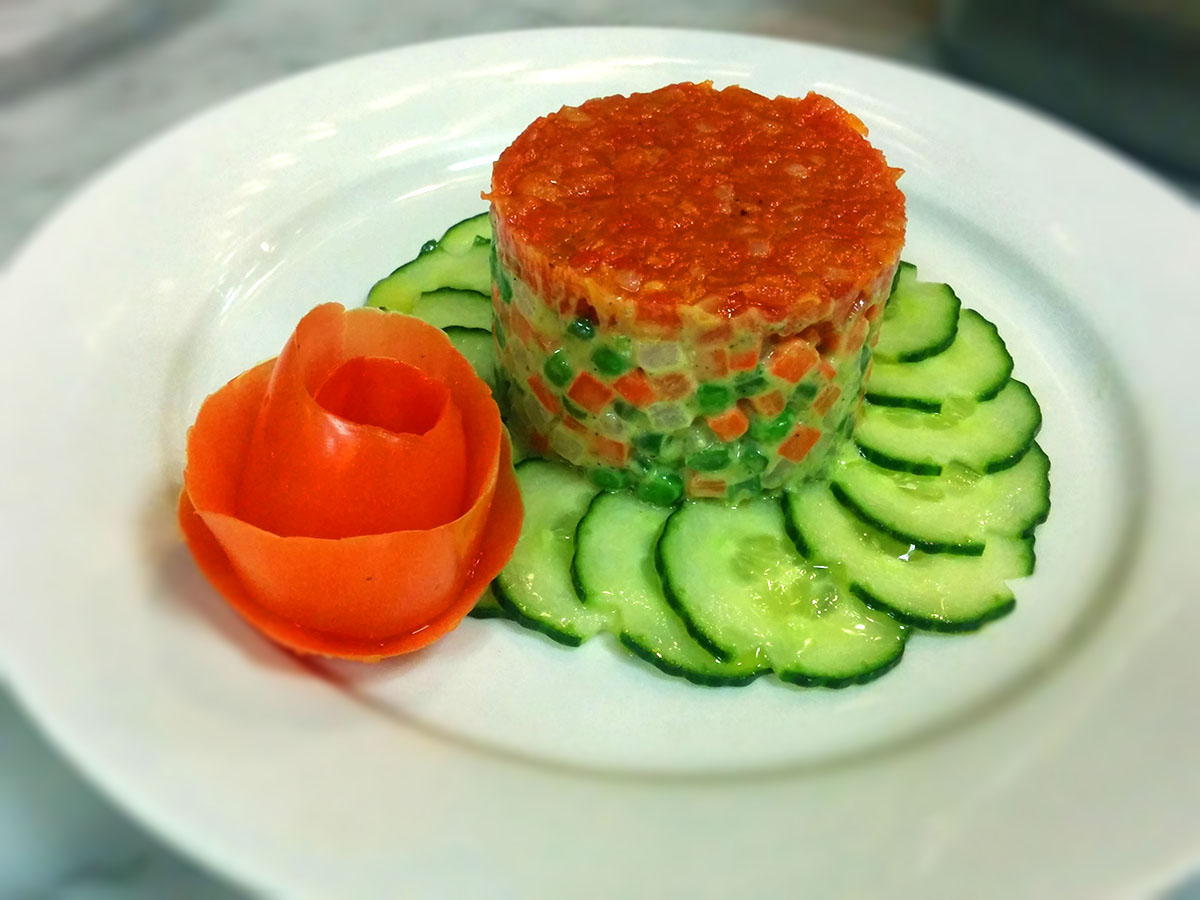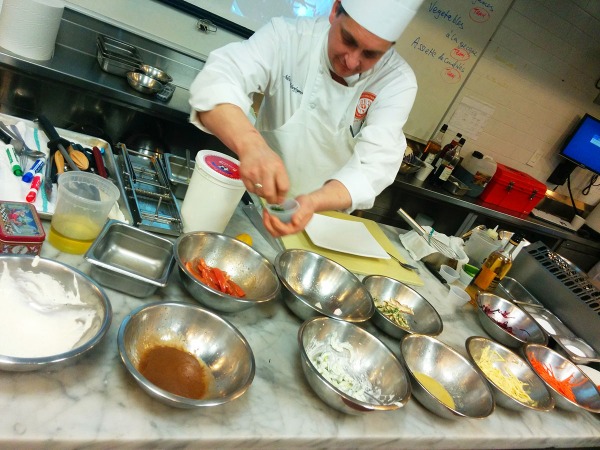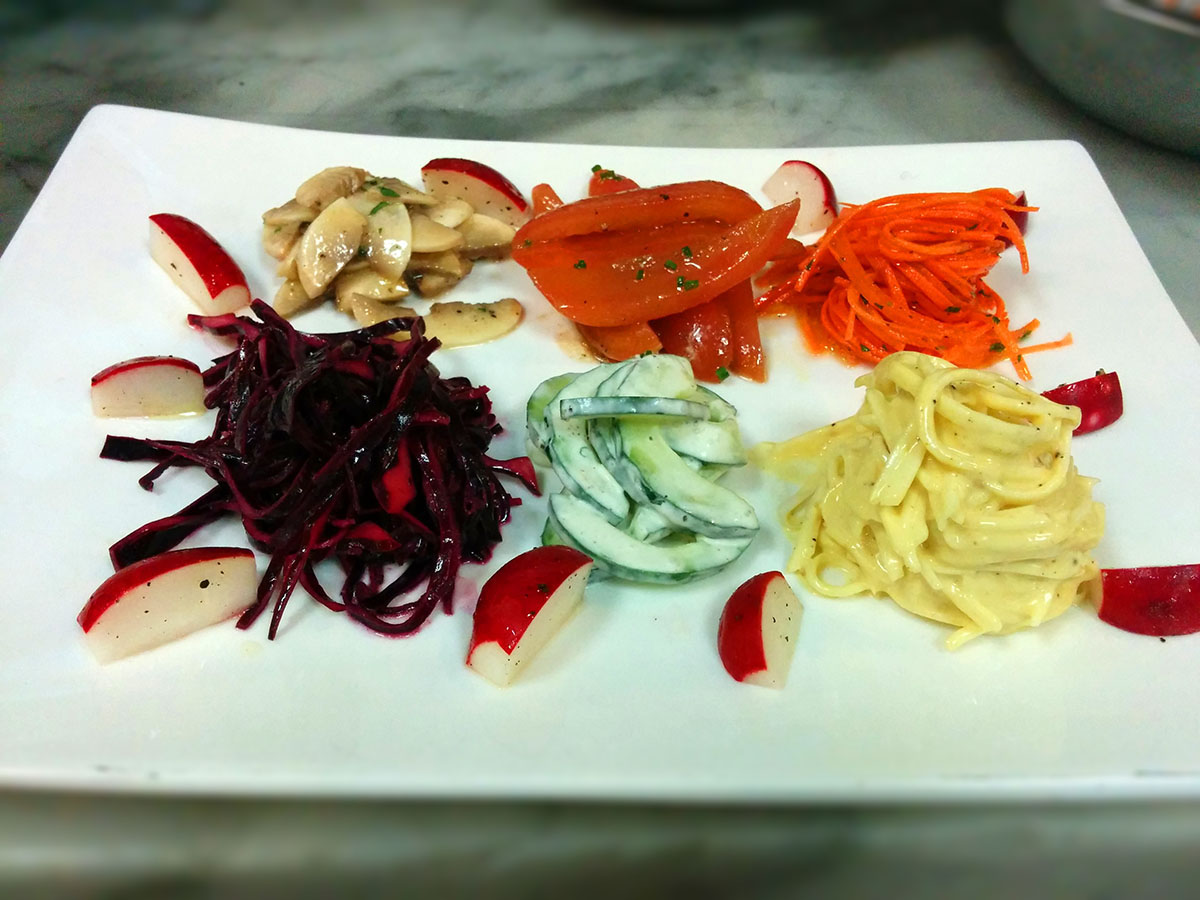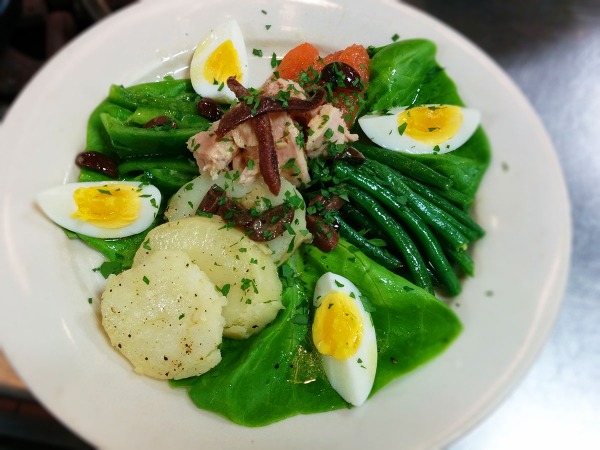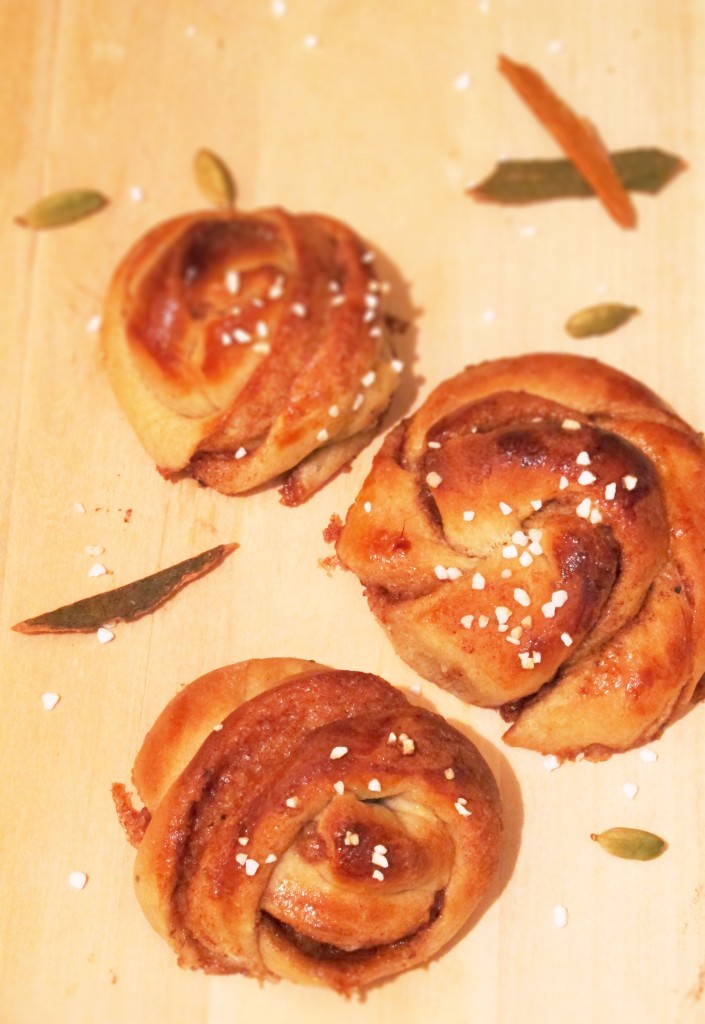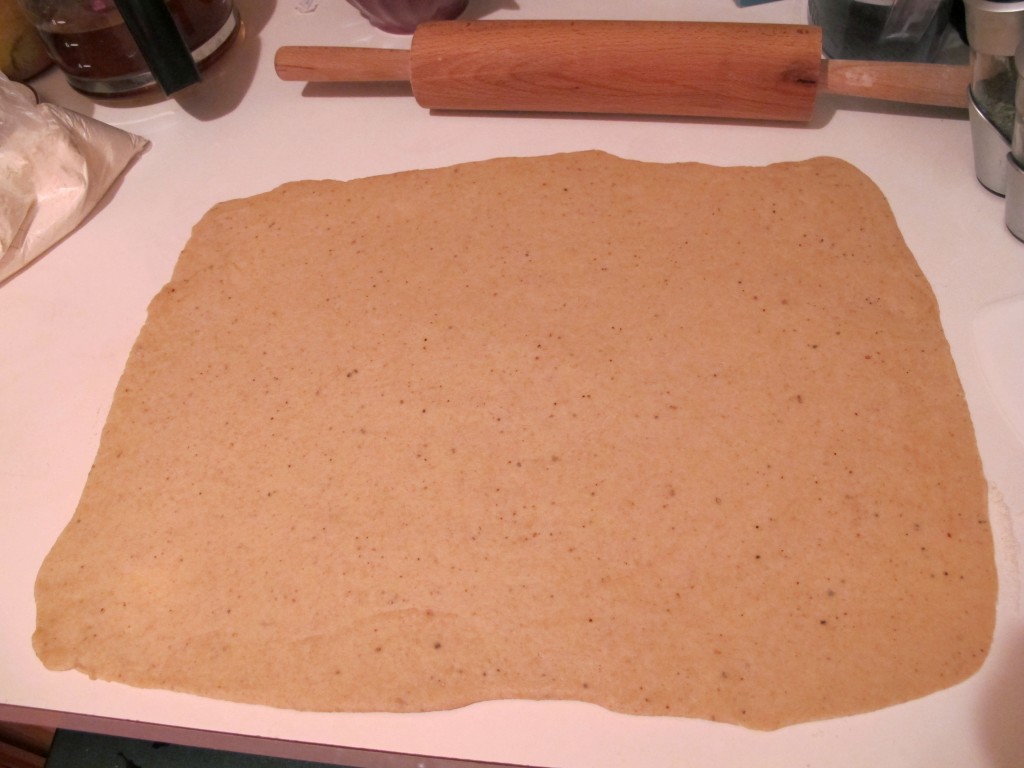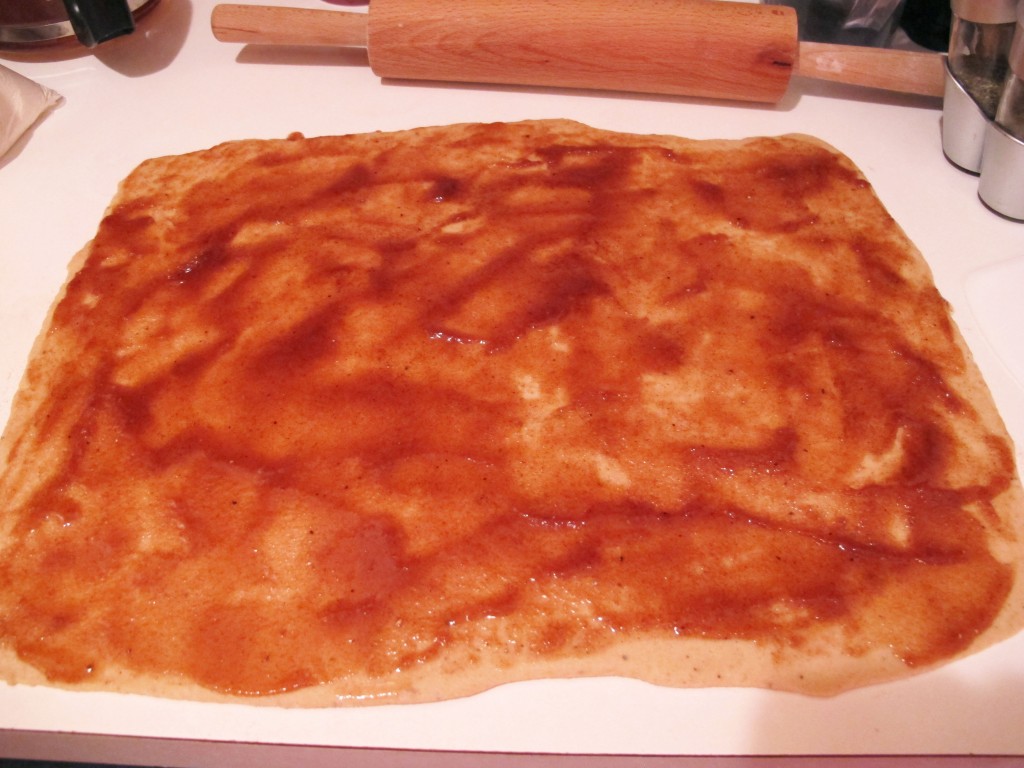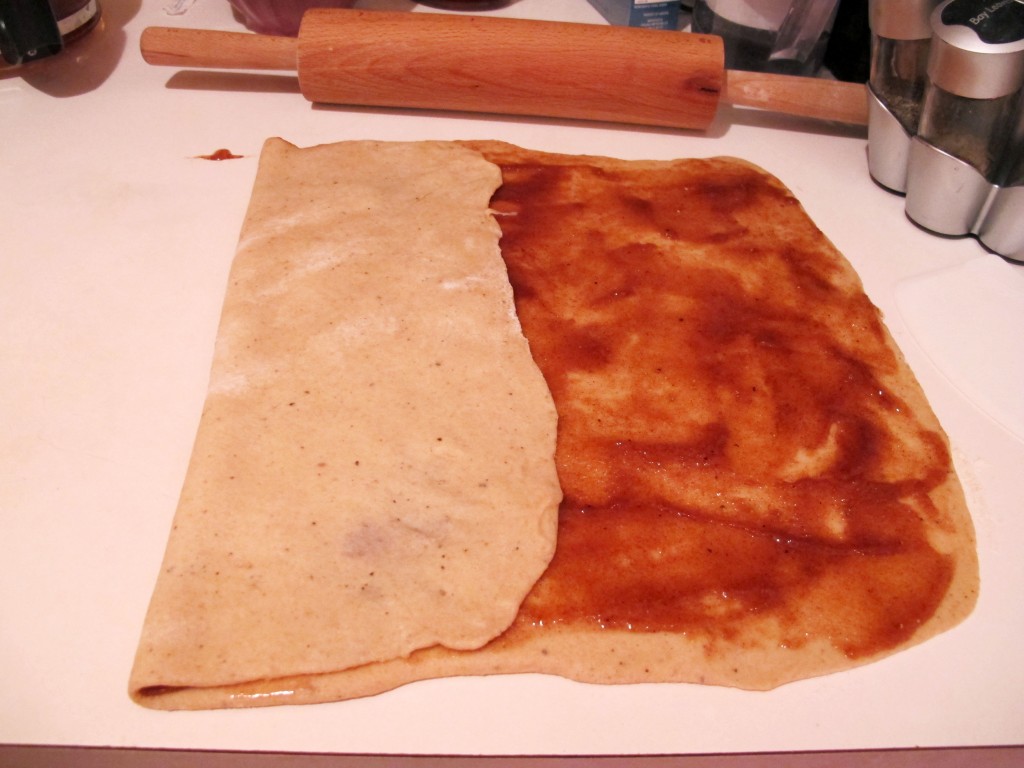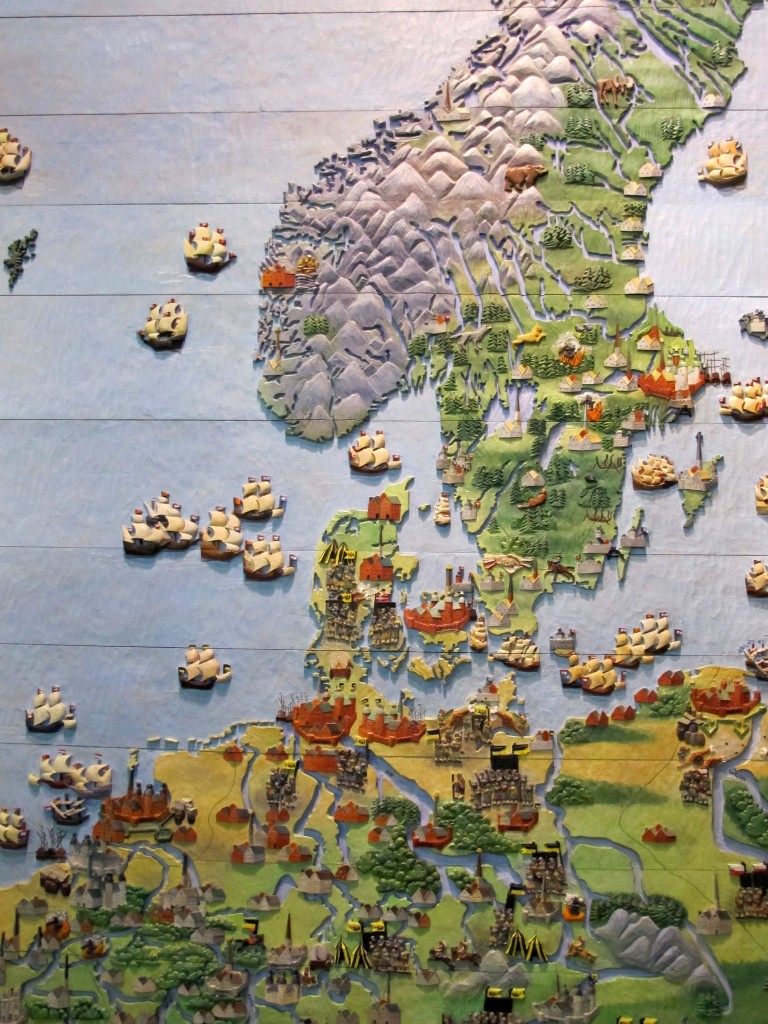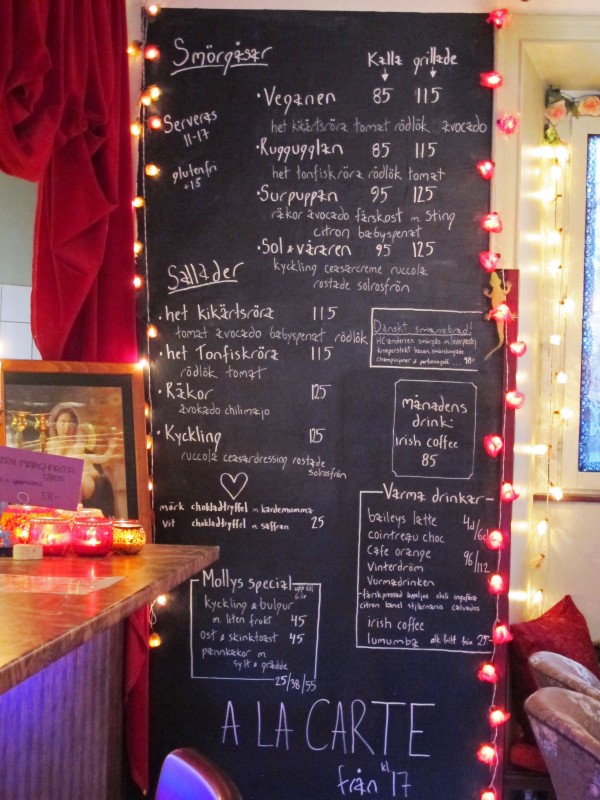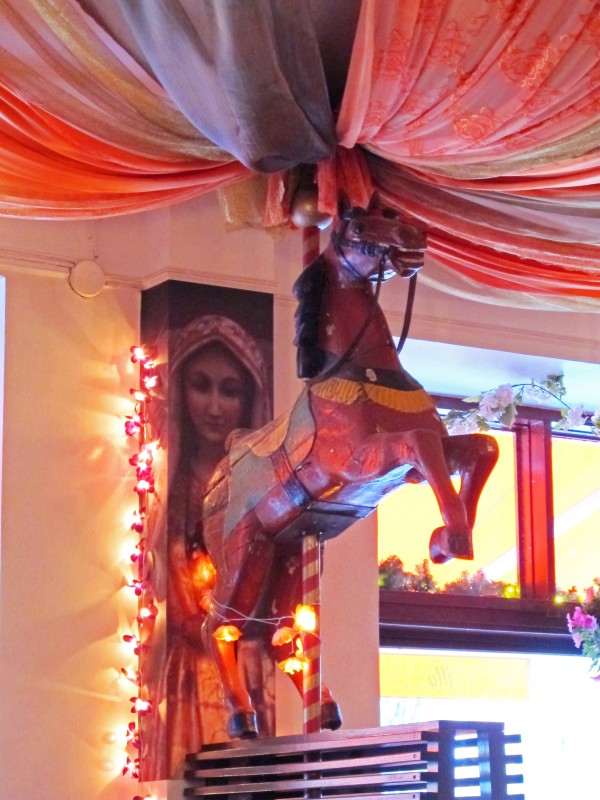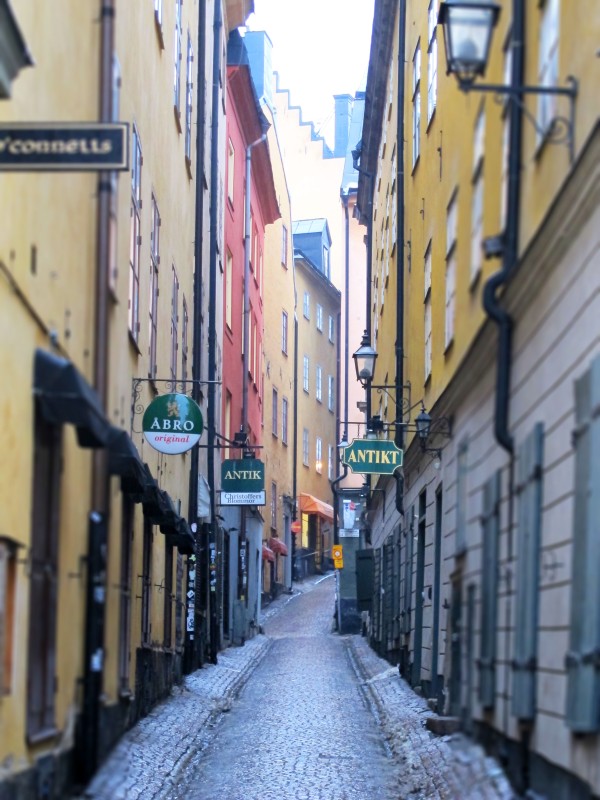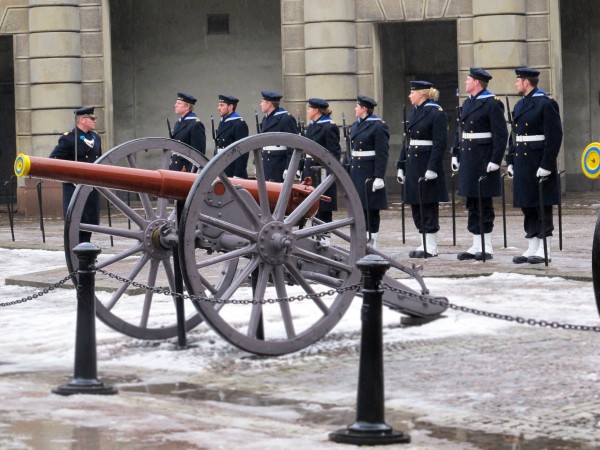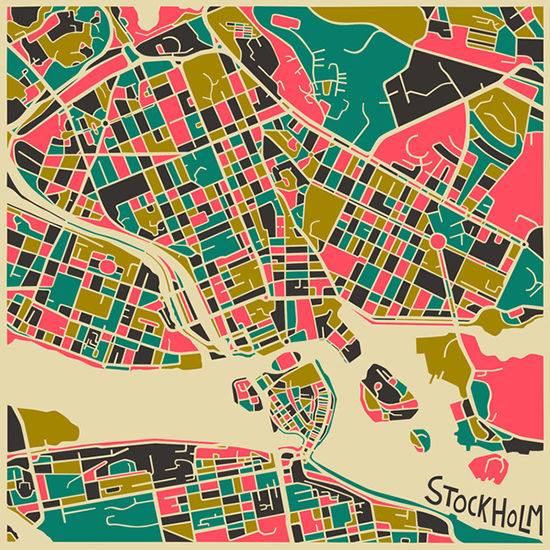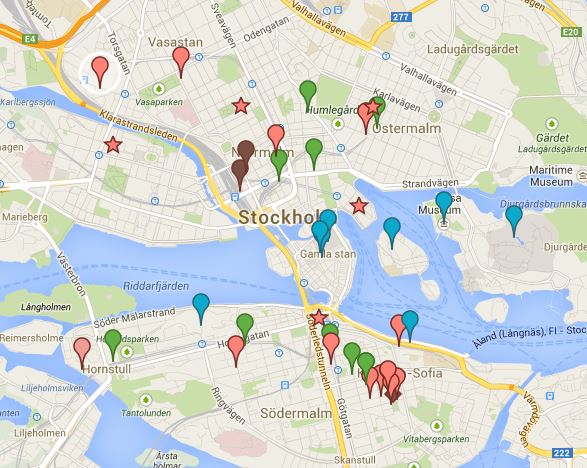After several introductory classes of stock and sauce making, we moved into making complete dishes. Namely, salads, vegetable dishes and soups. I tried not to yawn. “Vegetables are important!” insisted my chef-friend Wendy. “It’s difficult to do them well.” I tried to muster some excitement, but the thought of making 6 different types of vinaigrette was already making my whisking arm ache.
In class, we were greeted by some new faces. Chefs Ray and Janet were taking time off and so we were under the tutelage of Chefs Dominique, Nicolay, Guido and Jose for a few lessons. Immediately, we had to adjust our bearings to the instructor. Chef Ray’s macedoine cut was a little larger than Chef Nic’s, so I scrapped my vegetables and started over, lest we get chastised for improper taillage.
Chef Nic was also much heavier handed with seasoning. When we were repeatedly told that our food didn’t have enough salt or lemon, we would add more to the next dish. Finally, for our final plate of celery rémoulade, I dumped a big scoop of mustard and salt into the bowl, then tasted the celery root. Horror curled my tongue. “I think it’s too salty,” I whispered to my partner. “Oh no, what do we do?” He swiped at the sauce and said, “Actually, I think it’s fine, it just needs a little more lemon.” We brought our assiette de crudités up to the front and held our breath. “There’s too much dressing on the mushrooms, see how it’s pooling on the plate here?” said Chef Nic. “Also, there’s a little too much dressing on the celery root. But other than that, it’s fine.” I couldn’t believe my ears. “So, the celery rémoulade is not too salty?” I asked. “Nope, it’s just right,” Chef Nic replied. “Remember, restaurant food is paired with wine, and needs to be saltier than food eaten without wine. If you have a table where everyone is drinking wine except for one person, it’s not unusual for that one person to complain that the food is too salty, while everyone else is happy.”
So the salads, how did they taste? Turns out that when you treat each ingredient with care and allow its full expression to shine, salads can be flavorful, beautiful and dare I say it, exciting. We made a traditional salade niçoise, and each element was carefully washed, cut, seasoned and dressed to create a perfectly harmonious plate. “Why are you peeling the green pepper?” someone asked. “Because I don’t want the skin,” said Chef Dominique. We laughed. “Sometimes the skin can be a little tough or bitter, so I peel it,” Chef Dominique explained.
The macédoine de légumes cooked vegetable salad is actually one of my new all-time favorites, an exercise in how simple ingredients cooked well can come together to create something truly stunning. You make mayo and tomato sauce, then cut carrots, turnips, beans and peas into uniform pieces, cook each vegetable separately, then bind the vegetables together with the mayo and some basil puree, topped by a layer of tomato sauce. The result is creamy and acidic, sweet and savory, refreshing and satisfying. This was one of the most popular salads of the late 19th century, and is still often served in Parisian bistros today, but there probably aren’t any restaurants in NYC serving it now. Quel dommage!
Continue reading Eat Your Veggies…Because They’re Surprisingly Fun to Cook
